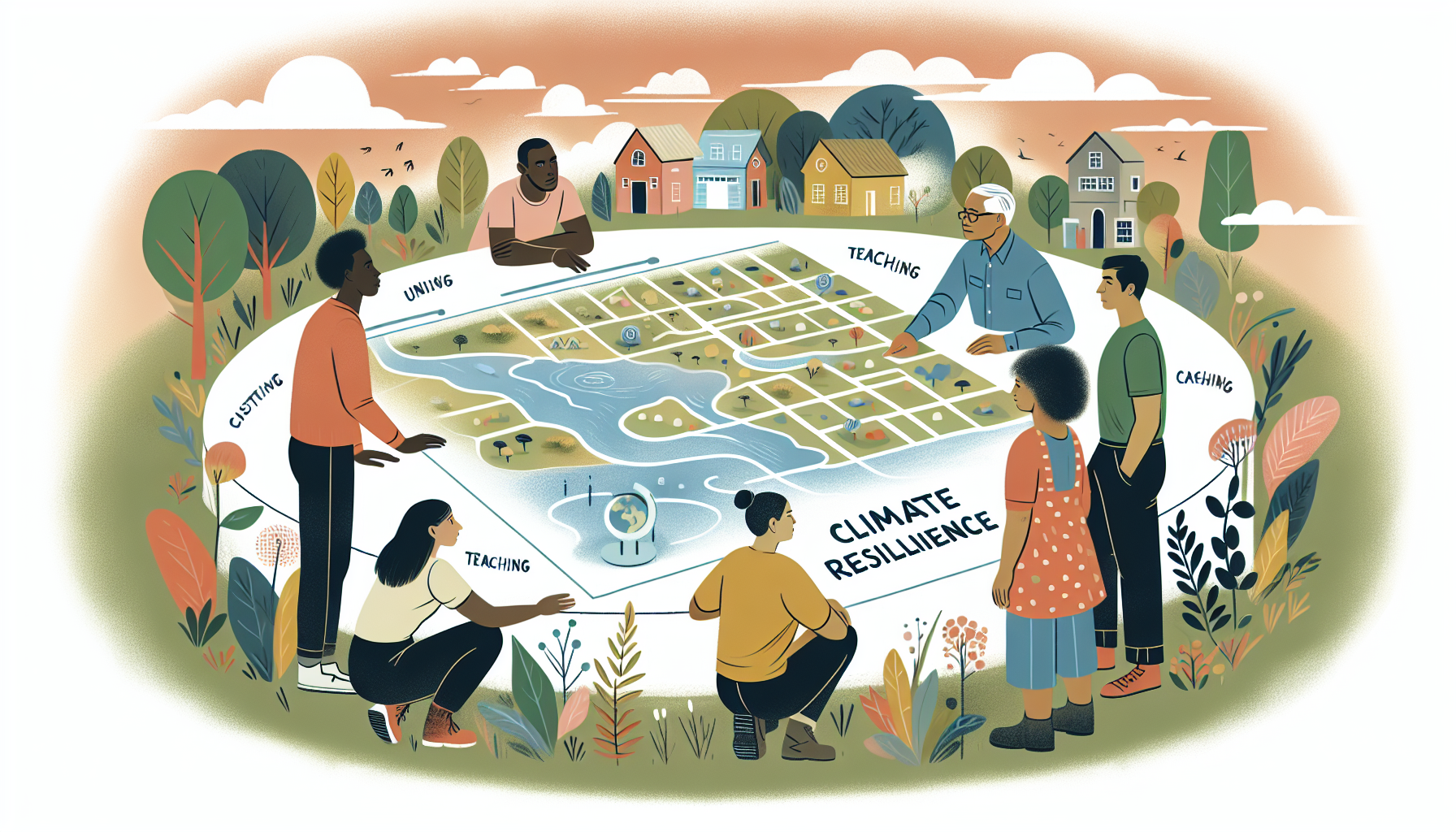Climate change can feel overwhelming, right? With unpredictable weather patterns, rising sea levels, and intense storms, it’s easy to feel like our efforts are just a drop in the ocean. Many of us want to make a change, but knowing where to start on the journey toward climate resilience can be daunting.
But fear not! If you stick with me, I promise you’ll discover practical prompts that can guide your thinking and help you take meaningful action. Together, we’ll explore how to assess vulnerabilities, create adaptation strategies, and engage your community in building a more resilient future.
From understanding the basics to sharing inspiring success stories, this guide will help you harness the power of ChatGPT to tackle climate resilience head-on. Let’s dive in and turn those challenges into opportunities!
Key Takeaways
- Climate resilience helps communities adapt to changing climate conditions and reduce vulnerabilities.
- Use specific prompts with ChatGPT to assess climate vulnerabilities, such as identifying local hazards and risk mapping.
- Develop adaptation strategies, including nature-based solutions and resilient infrastructure planning, using tailored AI prompts.
- Community engagement is critical; prompts can help create inclusive climate action plans and encourage collaboration.
- Education plays a vital role; utilize ChatGPT to generate resources and activities that promote awareness about climate resilience.

Effective ChatGPT Prompts for Climate Resilience
When it comes to tackling climate change, effective communication is key, and ChatGPT can play a significant role in crafting precise prompts for climate resilience.
Here are some tailored prompts to maximize AI’s potential for climate-related initiatives:
- “Generate a list of innovative climate adaptation strategies for urban areas.”
- “What are effective communication tools for engaging communities in climate resilience planning?”
- “Suggest digital tools that enhance climate resilience frameworks for local governments.”
- “How can AI technologies support climate change solutions in rural areas?”
Understanding Climate Resilience and Its Importance
Climate resilience refers to the ability of communities, ecosystems, and economies to adapt and thrive despite changing climate conditions.
Understanding its importance helps in developing strategies that can mitigate impacts from extreme weather and shifting climate patterns.
Key aspects include acknowledging the vulnerability of certain regions to climate change and recognizing the need for sustainable development to secure our future.
For example, implementing climate-resistant infrastructure can save resources and lives.
Practical Prompts for Assessing Climate Vulnerabilities
Identifying climate vulnerabilities is a crucial step in strengthening community resilience.
Here are some practical ChatGPT prompts to help assess climate risks:
- “Identify major climate hazards affecting local communities in [specific area].”
- “List effective tools for conducting a vulnerability assessment in urban settings.”
- “Create a climate risk mapping strategy for coastal regions.”
- “Evaluate the environmental vulnerabilities in [specific ecosystem type].”
Prompts to Generate Climate Adaptation Strategies
Once vulnerabilities are assessed, the next step is to outline effective climate adaptation strategies.
These ChatGPT prompts can facilitate this process:
- “What are some nature-based solutions for enhancing urban resilience?”
- “Suggest adaptive capacity-building initiatives for local businesses facing climate risks.”
- “Outline a resilient infrastructure planning framework for communities at high risk.”
- “Generate coastal resilience strategies that could protect local ecosystems.”
For more insights on using ChatGPT for community initiatives, check out these articles on ChatGPT for Government and ChatGPT for Education. They provide a wealth of information on leveraging AI across various sectors.

Creating Community-Based Climate Resilience Plans with ChatGPT
Community involvement is essential for effective climate resilience planning.
Using ChatGPT, stakeholders can craft inclusive local climate action plans that address specific needs.
Here are some prompts to help design these community-based plans:
- “Outline a community engagement strategy for climate resilience initiatives.”
- “What steps can we take to ensure social equity in climate resilience planning?”
- “Suggest methods for involving youth in local climate action efforts.”
- “Create a framework for collaborative decision-making in a community resilience project.”
Using ChatGPT for Climate Resilience Education and Awareness
Education is crucial for fostering awareness about climate resilience.
ChatGPT can generate engaging educational content that informs various audiences.
Here are some prompts to enhance climate resilience education initiatives:
- “Develop a curriculum outline for a climate resilience education program.”
- “List interactive activities that raise awareness about climate change among youth.”
- “Generate learning resources focused on sustainability and environmental stewardship.”
- “What are effective ways to engage the community in climate literacy?”

Prompts for Evaluating the Impact of Climate Resilience Projects
Assessing the effectiveness of climate resilience projects is crucial for understanding their impact.
Here are some prompts you can use with ChatGPT to evaluate these projects:
- “Outline a framework for monitoring and evaluating climate resilience initiatives.”
- “What metrics can be used to measure the success of a community climate action plan?”
- “Describe effective data collection methods for climate resilience projects.”
- “How can we gather feedback from the community on resilience strategies?”
Collaboration and Engagement: Prompts for Stakeholder Communication
Collaboration among stakeholders is key to successful climate resilience efforts.
Here are some practical prompts for facilitating communication:
- “Develop a stakeholder engagement plan for climate resilience initiatives.”
- “List the best communication channels for outreach in climate action projects.”
- “Suggest methods to foster partnerships between local governments and community organizations.”
- “What strategies can we use to encourage participation from diverse stakeholders in climate dialogues?”
Sharing Success Stories: Prompts for Highlighting Climate Resilience Initiatives
Telling success stories helps inspire action and showcases effective climate solutions.
Use these prompts to highlight initiatives that have made a difference:
- “Compile a list of successful community adaptation projects and their outcomes.”
- “Create a case study outline focusing on an effective climate resilience initiative.”
- “Describe the key elements of a successful climate solution worth sharing.”
- “What lessons can be drawn from successful climate resilience initiatives around the world?”
FAQs
Climate resilience refers to the ability of communities and ecosystems to adapt to climate change impacts. It’s crucial because it helps mitigate risks, protects lives, and ensures sustainable development in the face of environmental challenges.
ChatGPT can help generate innovative adaptation strategies by analyzing vulnerability data, suggesting best practices, and providing tailored solutions based on specific community needs and climate challenges.
Community engagement is vital for identifying local vulnerabilities and needs. It fosters ownership, encourages participation, and enhances the effectiveness of climate resilience plans by incorporating diverse perspectives and local knowledge.
Sharing success stories showcases effective practices, inspires action, and builds momentum for climate resilience initiatives. They highlight tangible benefits, promote collaboration, and serve as valuable learning opportunities for other communities.
